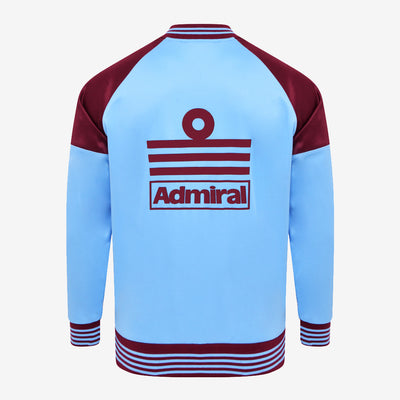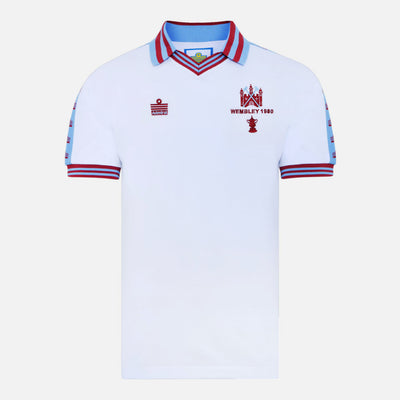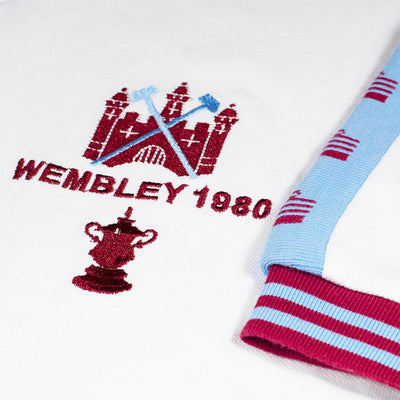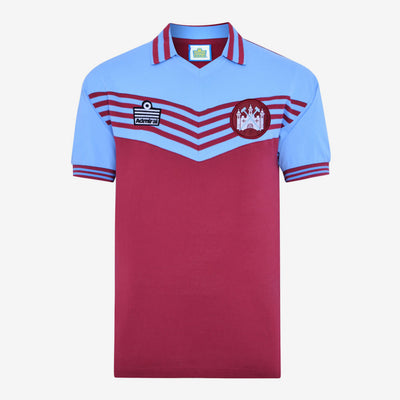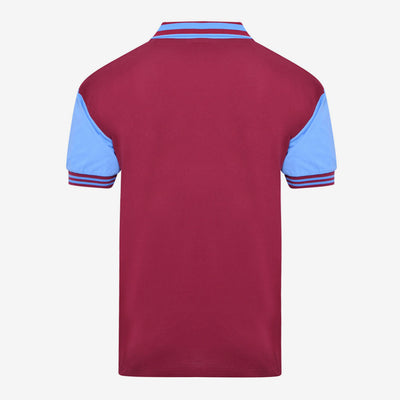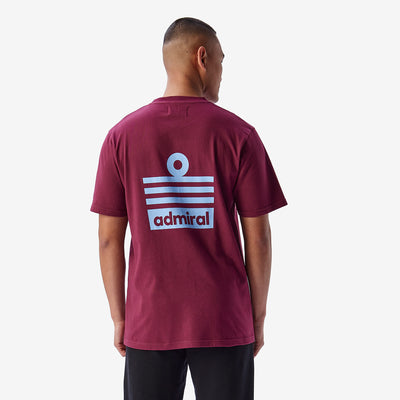The West Ham 1980 FA Cup Final Victory
In the current era, West Ham enjoys a reputation as a stable Premier League outfit. However, back in the 1979-80 season, they found themselves nestled in mid-table obscurity in the second division, while Arsenal surged ahead on multiple fronts in the top tier. As the London rivals approached the 1980 FA Cup Final, Arsenal stood as overwhelming favourites, widely anticipated to secure a comfortable victory according to the media narrative. Determined to defy the odds, West Ham aimed to rewrite the script.
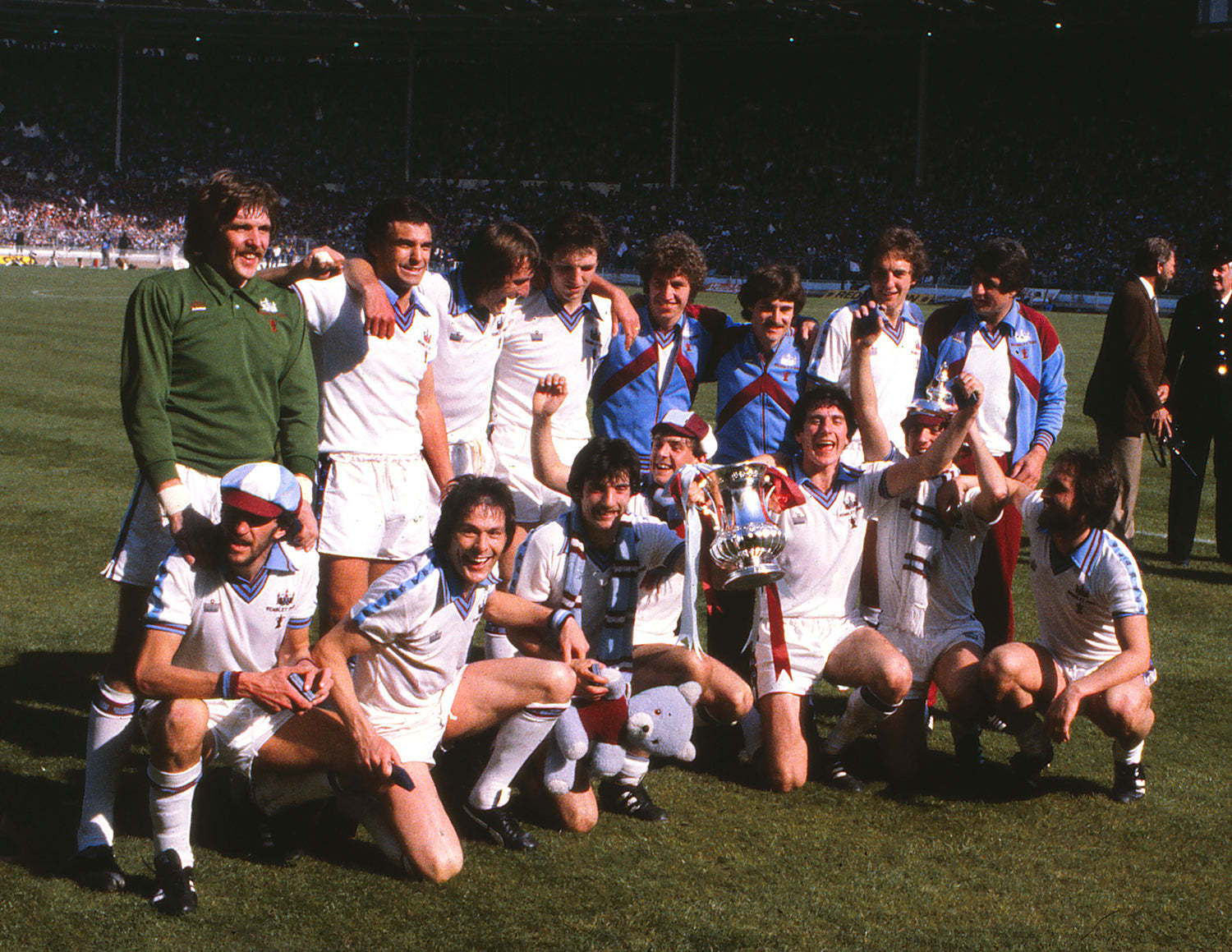
In 1975, West Ham had tasted FA Cup success, followed by a European final appearance the next season, showcasing their prowess on the big stage. However, by 1978, they were facing relegation from the top flight, leaving fans wondering where it all went wrong. The subsequent seasons didn't offer much solace either, with a disappointing 5th place finish in 1978-79 and slim hopes of promotion the following year. It seemed like a return to the top tier and Wembley was a distant dream. Enter the magic of the FA Cup.
Although rarely seen in the modern era, the FA Cup presents a rare opportunity for lower-league teams to nurture dreams of reaching the FA Cup Final. This unfolded in 1980, with West Ham making it all the way to the Final despite a tricky run. In the Quarter Final the side triumphed over top-tier Aston Villa and then went on to draw FA Cup stalwarts Everton in the Semi-Finals, which added another layer of complexity. Following a deadlock at Villa Park, a decisive rematch was scheduled at Elland Road to determine who would emerge victorious and step onto the turf of Wembley. In a gripping encounter, West Ham emerged triumphant with a 2-1 victory in extra time, courtesy of a crucial goal from the legendary Frank Lampard Sr., a name synonymous with football across the generations. With their place secured in the Final, West Ham now faced the formidable holders, Arsenal.

At this point it's worth highlighting the enduring presence of certain players who remained loyal to West Ham following their relegation from the top flight. Notably, Frank Lampard, Billy Bonds, and Trevor Brooking, integral members of the 1975 FA Cup-winning team, chose to stay with the club through its turbulent times. It’s these players who were rewarded for their loyalty as they walked out at Wembley Stadium before a crowd of 100,000 fans, clad in the iconic 'Wembley' embroidered sky blue Admiral walk-out jackets.

In order to decide which kit colours the teams would wear, the West Ham and Arsenal managers held a coin toss prior to the match. Arsenal manager Terry Neill called 'Heads' and lost after which the West Ham manger John Lyall decided they'd prefer to wear the white away kit. Thus, the West Ham players removed their sky blue track tops to reveal an all-white cup final kit with bespoke final badge. This iconic Admiral kit boasted a distinctive design with claret and sky blue stripes adorning the cuffs and the oversized v-neck collar. Additionally, Admiral logo taping was present on both arms in the same colour combination. The club crest underwent a modification for the cup final, with the traditional West Ham emblem embroidered above the inscription 'Wembley 1980,' replacing the circular crest featured on the away shirt earlier in the campaign. Furthermore, an embroidered FA Cup trophy was incorporated into the crest to mark the momentous occasion.

Fate would have it that it was one of those heroes from the 1975 FA Cup Final who sealed the victory in the final. Trevor Brooking, already a legendary figure among the West Ham faithful, cemented his legendary status further by nodding home a cross from the right with a stooping header that nestled into the back of the net. Despite expectations of an Arsenal onslaught, Phil Parkes stood resolute in the West Ham goal, denying any attempts to breach his defences. Remarkably, West Ham could have extended their lead further, with 17-year-old Paul Allen breaking through on goal only to be thwarted by a cynical foul from Arsenal's Willie Young just outside the penalty area. The challenge on the youngest player to play in an FA Cup Final denied a clear goalscoring opportunity and earned Young just a yellow card, a moment that would later prompt considerations for the introduction of a red card for such professional fouls.
The final whistle blew with West Ham holding on to their slender 1-0 lead, clinching the FA Cup for the third time in their history. Regrettably for the devoted Hammers supporters, this triumph marks the last occasion their team lifted the prestigious trophy.

